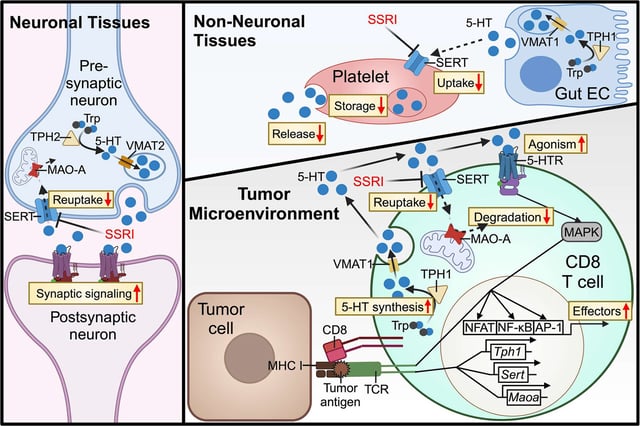Overview
- UCLA researchers discovered that selective serotonin reuptake inhibitors (SSRIs), a common class of antidepressants, reduced tumor sizes by over 50% in preclinical models of multiple cancer types, including melanoma and breast cancer.
- SSRIs were found to reinvigorate killer T cells by increasing their access to serotonin signals, enhancing their ability to target and destroy cancer cells.
- Combining SSRIs with immune checkpoint blockade therapy further improved outcomes in mice, with some cases achieving complete cancer remission.
- The team has filed a patent for the SSRI–immunotherapy combination and is developing human clinical trials to evaluate its effectiveness in cancer patients.
- Given the widespread use of SSRIs, researchers also plan to analyze real-world data to assess whether cancer patients on these medications experience improved outcomes compared to those not taking SSRIs.



